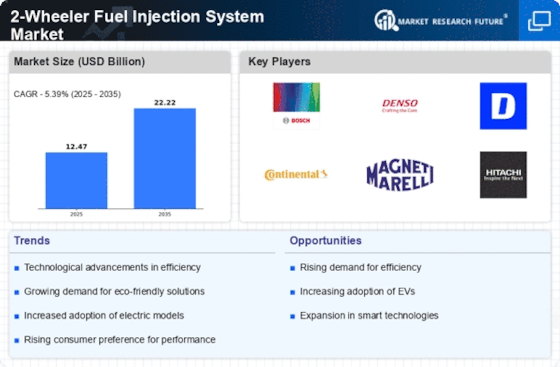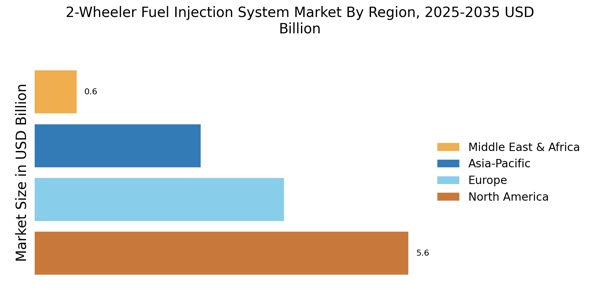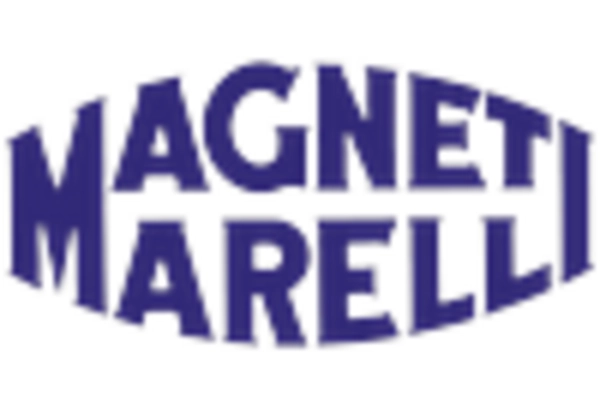Rising Demand for Fuel Efficiency
The 2-Wheeler Fuel Injection System Market is significantly influenced by the rising demand for fuel efficiency among consumers. As fuel prices continue to fluctuate, riders are increasingly seeking vehicles that offer better mileage. Fuel injection systems, particularly electronic fuel injection, provide improved fuel atomization and combustion efficiency, leading to reduced fuel consumption. According to recent data, motorcycles equipped with fuel injection systems can achieve up to 20% better fuel efficiency compared to traditional carbureted models. This trend is likely to drive manufacturers to adopt fuel injection technology, thereby expanding the market.
Regulatory Pressure for Emission Control
The 2-Wheeler Fuel Injection System Market is also shaped by stringent emission regulations imposed by governments worldwide. These regulations aim to reduce air pollution and promote cleaner transportation options. As a result, manufacturers are compelled to adopt fuel injection systems that comply with these standards. The implementation of Euro 5 and similar emission norms has accelerated the shift towards fuel injection technology, as it enables better control over emissions compared to carburetors. This regulatory pressure is expected to propel the market forward, as compliance becomes a necessity for manufacturers.
Consumer Preference for Advanced Features
The 2-Wheeler Fuel Injection System Market is witnessing a shift in consumer preferences towards advanced features in two-wheelers. Modern riders are increasingly inclined towards vehicles that offer enhanced performance, connectivity, and convenience. Fuel injection systems facilitate the integration of smart features such as ride-by-wire technology, which enhances throttle response and overall riding experience. As manufacturers respond to these evolving consumer demands, the market for fuel injection systems is likely to expand, with an anticipated growth rate of around 5% in the coming years.
Growth of Electric and Hybrid Two-Wheelers
The 2-Wheeler Fuel Injection System Market is also impacted by the growth of electric and hybrid two-wheelers. While these vehicles utilize different propulsion systems, the transition towards hybrid models often incorporates fuel injection technology to optimize performance and efficiency. As consumers become more environmentally conscious, the demand for hybrid two-wheelers is expected to rise. This trend may lead to an increased focus on developing advanced fuel injection systems that can work in tandem with electric motors, thereby creating new opportunities within the market.
Technological Advancements in Fuel Injection Systems
The 2-Wheeler Fuel Injection System Market is experiencing a surge in technological advancements, particularly in electronic fuel injection (EFI) systems. These innovations enhance engine performance, fuel efficiency, and reduce emissions. For instance, the integration of advanced sensors and control units allows for precise fuel delivery, optimizing combustion. As manufacturers invest in research and development, the market is projected to grow at a compound annual growth rate (CAGR) of approximately 6% over the next five years. This growth is driven by the increasing demand for high-performance motorcycles and scooters, which require sophisticated fuel injection systems to meet stringent emission regulations.

















